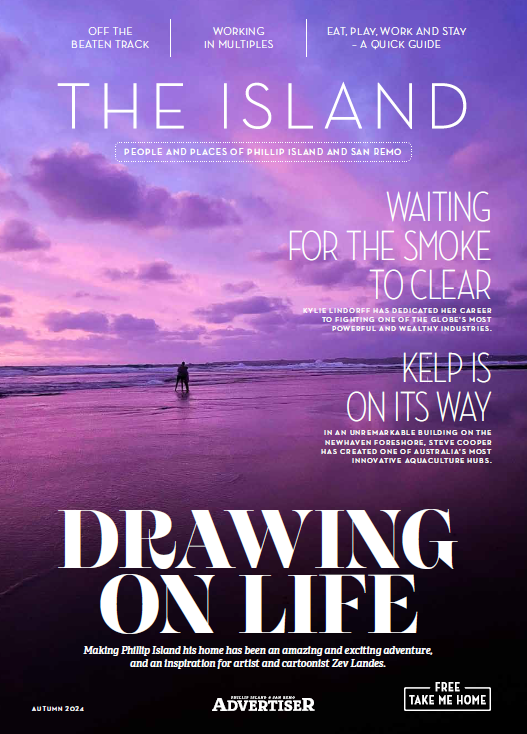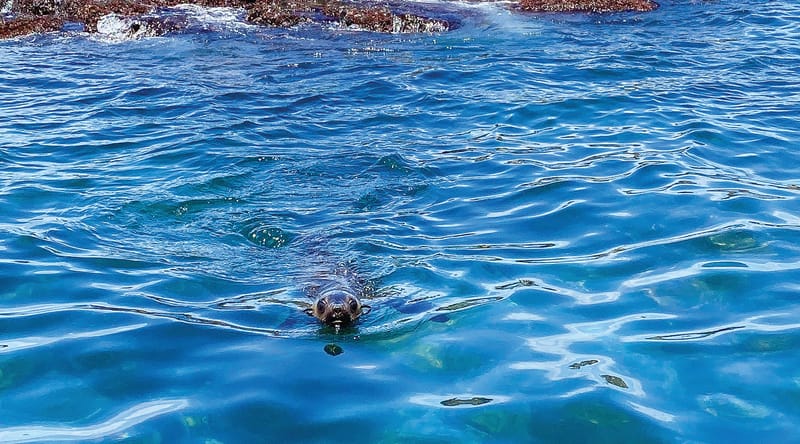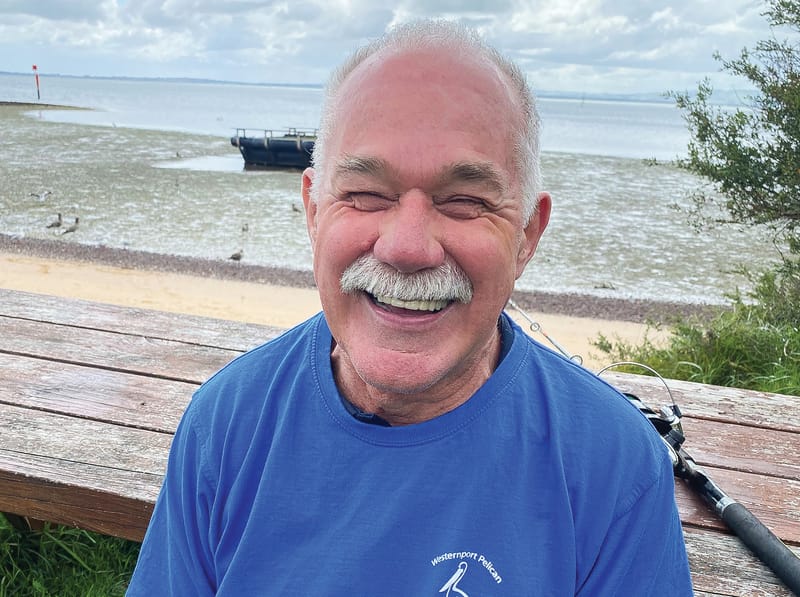Snippets from The Island - Outback Experience
When retired teacher Diane McAskill and her husband Paul broke down at Julia Creek in Queensland on a road trip to the Northern Territory, she never thought she’d be returning to the tiny town.
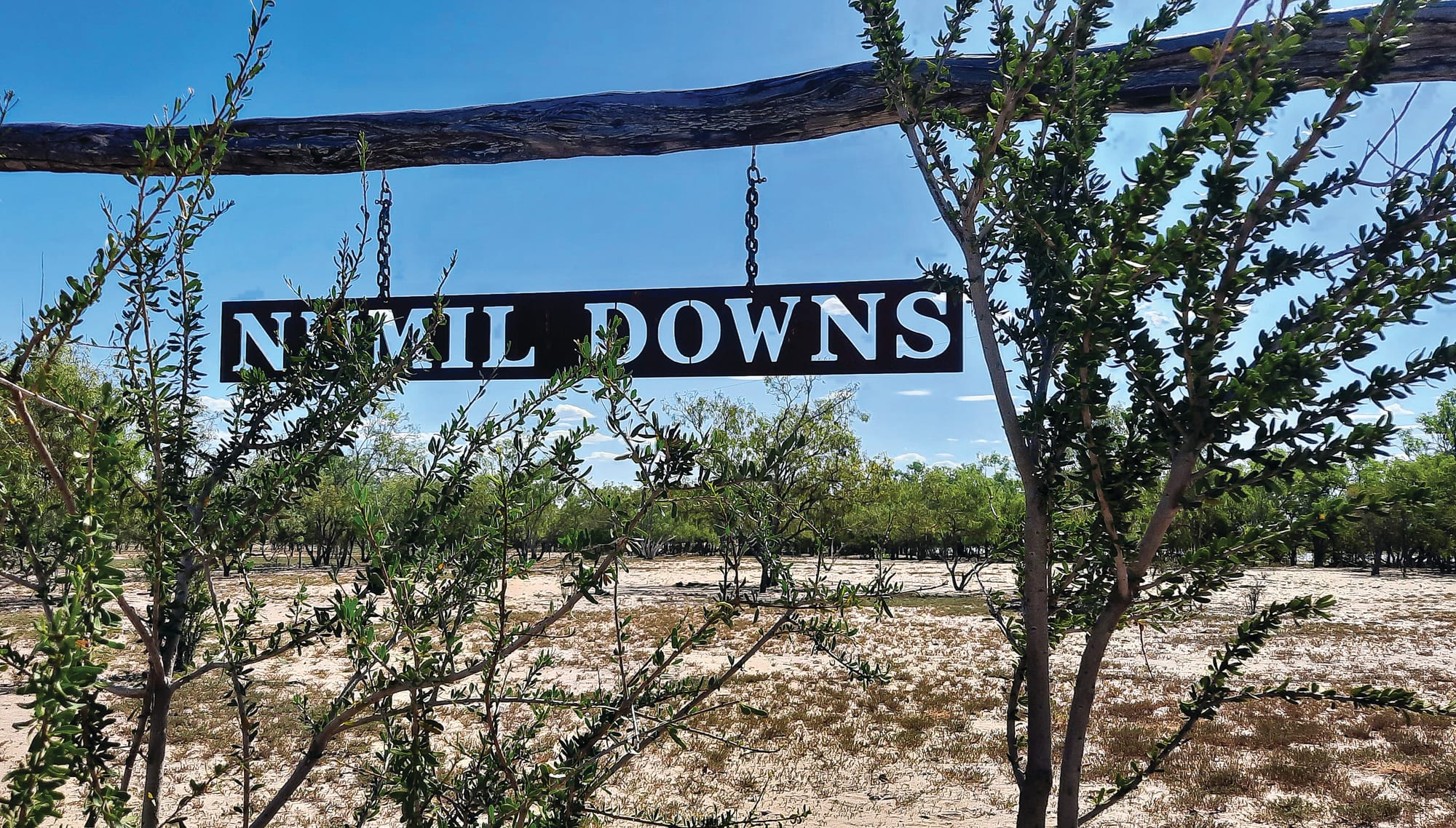
Last year, on a winter road trip to the Northern Territory and Queensland, my husband Paul and I, broke down at Julia Creek in Queensland. It’s a quaint little town that has a few shops, a library, a hospital, but no doctor. Even the offer of a $500,000 package doesn’t tempt too many GPs to the outback. But they do have a mechanic thank goodness.
One month after returning home to Phillip Island from our trip I could not imagine myself going back on my own to Julia Creek. However, sometimes life takes all sorts of twists and turns and the challenge to teach a prep child on an outback station one and a half hours north of there, landed in my lap.
It was a rushed packing of all sorts of teaching aids and very few clothes, followed by a plane to Townsville. After that, a small REX plane in the wee hours of the morning with several stop offs in remote towns before Julia Creek, saw me being met by a total stranger at the deserted airport. The local hardware owner at Julia Creek doubles as the baggage handler and traffic controller. Once the plane comes in – she is off back to her shop.
Waiting at the airport to meet me was Hayley, the mother of my new student. We introduced ourselves and did a quick stop off in town, Hayley telling me to pick up any supplies I needed before we headed out to the station. I couldn’t really think what I needed, as the deal was all food and accommodation included. It was hot and oppressive, and I had been up since 4am, so I walked through the local supermarket and grabbed a box of Twinings peppermint tea for an astronomical price and a packet of mixed biscuits. What else would one need apart from chocolate? But as that was stored in the fridge in the store, I knew it would be a waste of money where I was going.
When we arrived at the 250,000-acre cattle station Numil Downs, I was greeted by the family – dad Chris, my future pupil Charles (6) and Tiffany (3) – and extreme remoteness. I was made to feel so welcome and one of the family, even getting to eat at the head of their dining table at mealtime.
I also met several of the backpackers who were heading out to a rodeo for the weekend, so it would just be the family and me for the inaugural weekend. My accommodation was self-contained and not quite the “Hilton”, but I named it that upon arrival. The backpackers lived in dongers (transportable cabins), shared an outside amenities block and ate in a separate room at the back of the house.
I very quickly learnt the art of self-survival, being deprived of all my usual treats and luxuries from home and so my peppermint tea became the best investment ever. You learn to manage day to day with what you have and with the temperature over 40 degrees each day, cold tank water from the fridge is your best friend.
After establishing myself in the classroom and working out my student’s prior knowledge, I realised this would not be a walk in the park. The hours in the classroom were 8am to 5pm. A prep student who had not handed in assessment tasks, had clearly not undertaken his learning via The School of the Air (under the wing of his previous governess) and wasn’t that keen on school was going to be a challenge from the outset. A challenge I looked forward to. I reminded myself, it was only four weeks if all else failed.
In that first week, I realised life on a station is very lonely for children. The fact the kids could not go outside to play because of the snakes, spiders, crocodiles and the heat made them even more isolated. I needed to bring out all the tricks in the books to keep the classroom a vibrant learning space all day. It was a very long day for a small child, with his three-year-old sister often a distraction – but it is part of the deal in remote education, siblings come into the classroom.
I was in awe; what a huge role for the usual governess, who might be barely 18 when taking on these jobs in the outback. I was super fortunate to have a new governess join the family just before I arrived. A governess can work from 6.30am to 6pm in the outback, six days a week. It becomes a mixture of nanny work, teaching and sometimes even station hand.
I was thankful my role was to teach only. However, at a station, you have to throw your hat into the ring and just pitch in wherever needed – so my role became quite varied at times. Sometimes my hours stretched way beyond the allotted hours. It becomes an unspoken rule, if things need to be done, or unexpected things happens, you just do it. Like the time I was in my “Hilton” reading and was called out to jump into the car to assist carrying Tiffany, the three-year-old to Julia Creek Hospital as she had jumped off the couch and had a suspected broken arm. Many hours later – and as there is no doctor in town, after a video link to a Mt Isa doctor – it was confirmed; Tiffany had a broken arm and needed it set. I got back to the station as the sun set and the previous hours had become a blur.
Station life is incredibly hard. I feel really different about my steak now. The challenges of drought and then flood, loss of stock, the daily grind to get all things done. It is also just the little things, like travelling many kilometres to check the water for the stock from the bores daily. The feed required, such as molasses blends and lick blocks when there is no grass, the struggles with life and death of the new calves.
The property itself has many hidden gems, three small mountains which predate dinosaurs, underground springs and moon rocks and fossils in the river. There’s remnants of World War II rifle practice, old stock routes, holding yards made with gidgee wood, old homesteads and inns. But the big talk is the huge underground seam of vanadium – a battery component. The government/commercial enterprise have already acquired an area in Julia Creek to start mining. This property is earmarked for an open cut mine, which is the last thing their little piece of paradise needs. The station has been family run since before World War II (they won the land in a ballot and were given an additional “paddock” after the war) and they like their anonymity, their quiet lifestyle and their isolation.
My time was all too short, and my learning curve huge on the adventures I was taken on outside the classroom. Some things I now know:
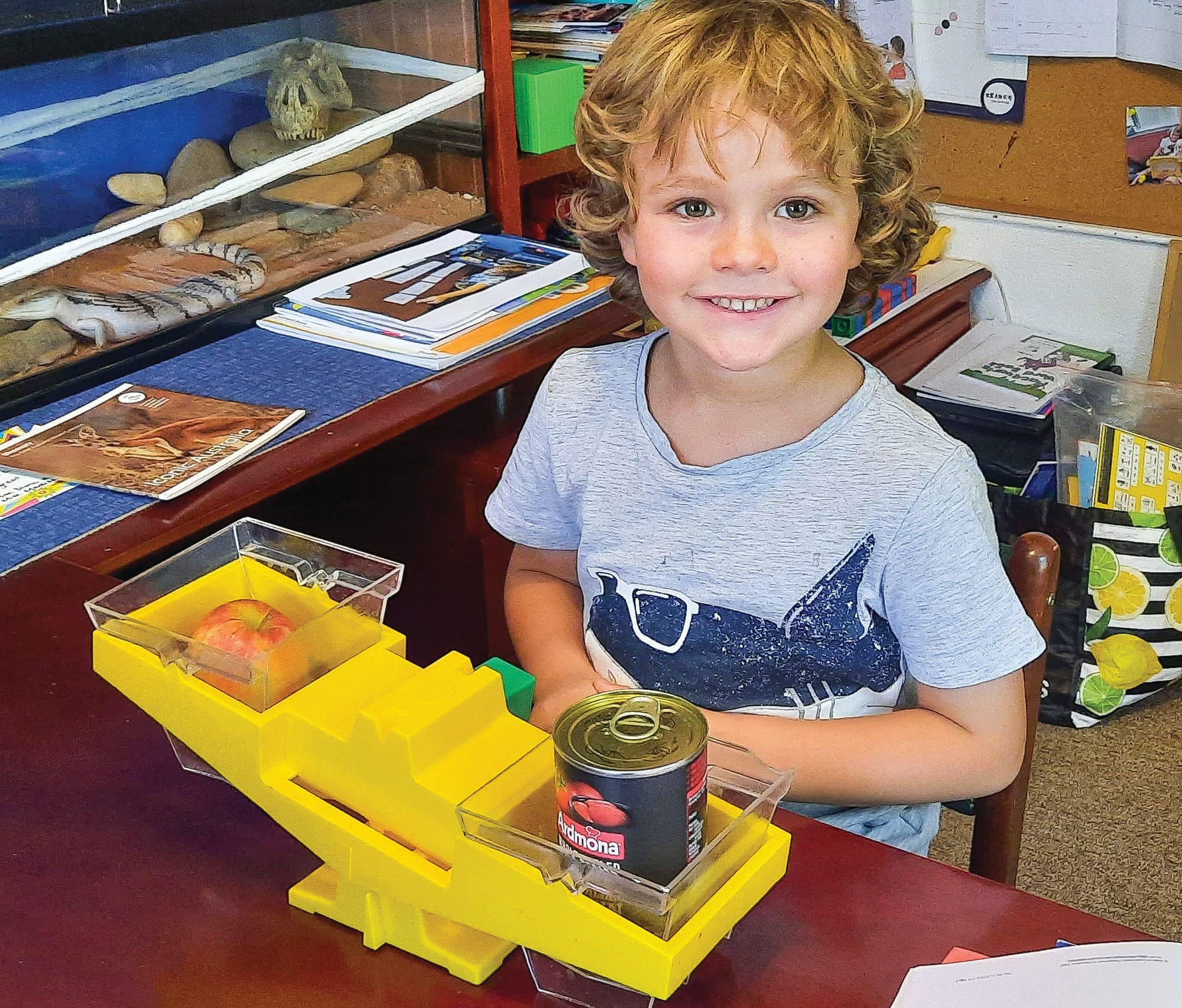
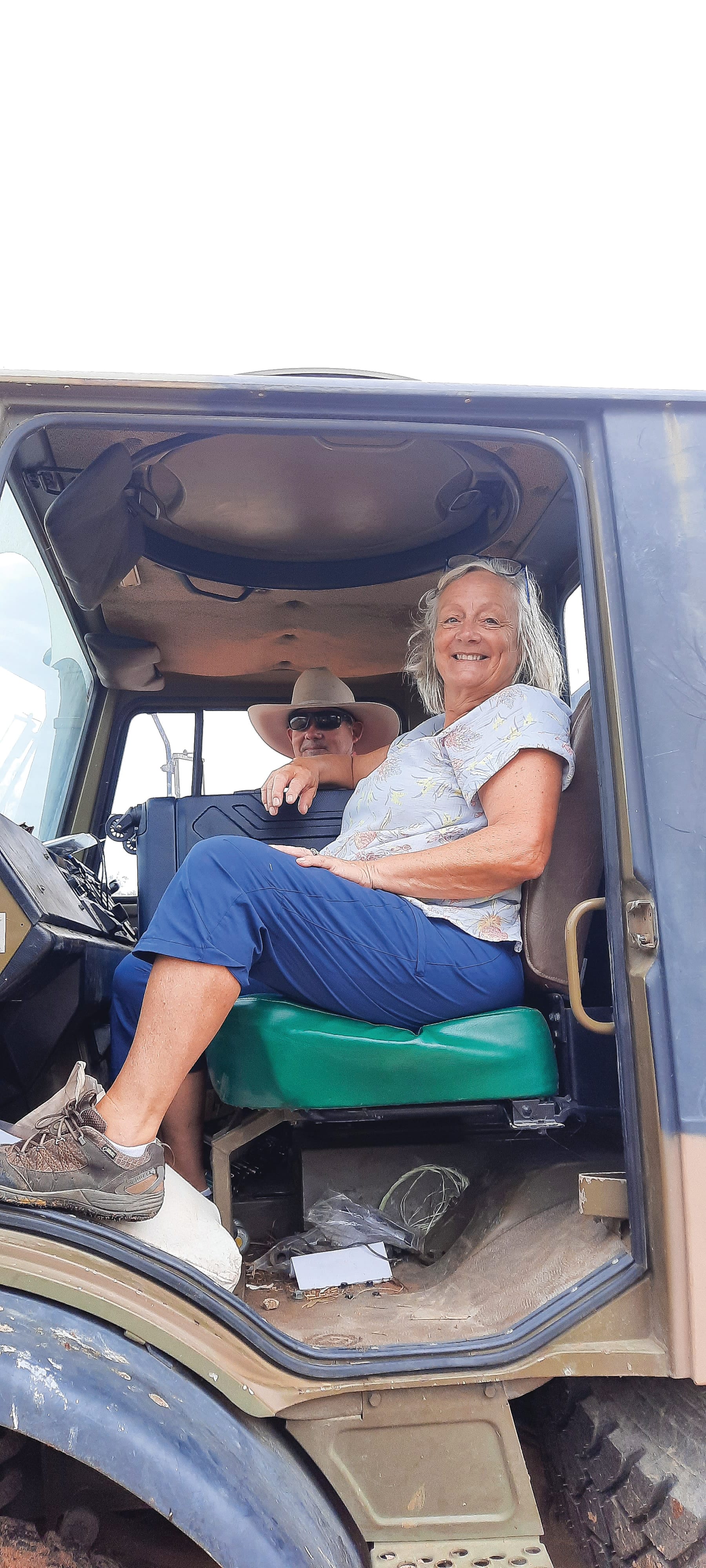
There are no weekends on a station … stock need feeding every day.
The cute little piglets are great on a spit roast apparently.
Mustering requires extreme talent and toughness … and a helicopter if you have a large property where the cattle roam free.
Wear boots and socks at all times – because if you get bitten by a snake out there – you probably cannot be saved in time. Thongs are out.
When swimming in the lake, send the dogs in first … the children must swim behind the dogs. It’s well-known crocodiles will take the dogs first … although that is not a given.
Backpackers work 88 days to get their visa rights, so they come and go.
The postman comes in twice a week – If he can. In the wet season, that is highly unlikely for weeks.
Children learn via School of the Air Mt Isa and have little physical contact with other children – which makes learning rules of a game difficult, and fair play impossible. It also makes a six-year-old’s birthday party very lonely. Thank goodness for the backpackers joining in on our disco and helping us eat the cake and party food.
The 2019 floods were devastating for Numil Downs, with 3500 head of stock lost. PTSD is evident when recalling the events that led up to the stock drowning as they reflected on the images with me at their dining table.
When it rains, everyone rings around the stations to see who got what rainfall at 7am. Ironically, rain is dearly needed at present as there is little grass/feed left. The good grass was knocked out by the floods as it moved soil and silt. The thunderstorms of the wet season are loud and frightening. Lightning can knock a cow off its feet and over a fence (I am told). The night before I left, the “Hilton” copped a battering. The thunder came up through the floor and the lightning was incredible.
When the wet season starts – you need to get out quickly – the rivers rise overnight, and this creates an interesting challenge. When it was my time to leave, I managed to escape the rising rivers in a MOG – ex army vehicle, through just under a metre of rising water. Our plan for Hayley and the kids to take me to the airport at 10am was abandoned as the rivers quickly rose. The last I saw was the three of them waving me off, us all very sad … but indeed a life-changing adventure for me.
By Diane Mcaskill
Photos: Diane Mcaskill



